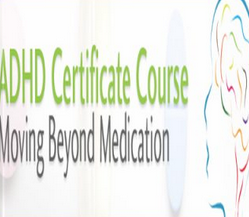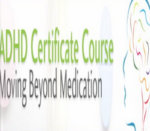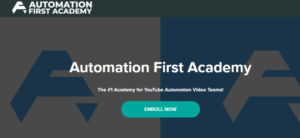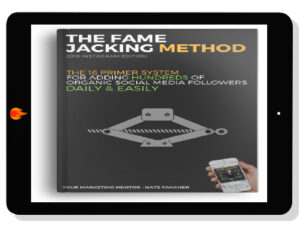Available for Pre-Order. This product will be available within a few days.
David Nowell – ADHD Certificate Course
For many diagnosed with ADHD, medication is not the best approach as it could be accompanied by side effects and cause concern with long-term use… that’s where caring professionals like yourself step in to offer alternative solutions to help your clients improve their everyday lives.
With this transformative certificate course, you can take advantage of the latest brain research and evidence-based best practices to get kids and adults motivated, focused, organized, and performing closer to their true potential. By understanding the way the brain works in ADHD along with the executive function relationship, you will be able to better identify a variety of interventions that can positively influence symptoms of ADHD in your clients.
Gain the strategies you need to develop a holistic approach when working with adults and children with ADHD:
Interventions for improving impulse control and working memory
Therapies to increase attention and timing awareness
Approaches to help manage schoolwork and improve accountability
And more!
Not only will you walk away with relevant research on the brain’s response to non-medication strategies, but you’ll also learn the most common non-medication interventions for ADHD such as self-regulation, mindfulness meditation and neurofeedback. You will also learn the impact exercise, diet, sleep, supplements and environment may have on ADHD symptoms.
Through first-hand demonstrations, this intervention-heavy course looks at ways to treat ADHD – from childhood into the adult years – through ALL the levels of the disorder.
Plus, you’ll earn your Certificate in ADHD Interventions when you complete this online training! Advance your practice and improve your clients’ well-being and happiness today…
Changing the ADHD Brain:
Moving Beyond Medication
Join David Nowell, Ph.D. as he looks at ADHD from a developmental perspective while considering reasons for the apparent increase in ADHD diagnoses over the past two decades. Discover the relationship between the frontal lobe of the brain and ADHD symptomology, as well as the informed strategies that impact the reduction of ADHD symptoms as it relates to assessment and treatment planning. By the end of this training you will become well versed in the ADHD Brain!
Why Not Medication?
Useful as a short-term tool
Concerns with long-term use: Effects on the brain
ADHD and the “Immature” Brain
Brain imaging evidence of ADHD
Research regarding ADHD brain development
Frontal lobes mature more slowly in the ADHD brain
Excess theta brainwaves
Implications for treatment
Movement-Based Strategies
Wake up an underaroused ADHD brain
Hyperactivity as an adaptive mechanism
The impact of play and exercise on the brain
Role of rhythm and timing training
Integrated movement systems for ADHD
Frontal Lobe/Working Memory Strategic Tools
Use it or lose it: Increase memory, attention and focus
Games for impulse control and working memory
Computerized cognitive training programs
Meditation and mindfulness for ADHD
Neurofeedback
Diet and Nutrition
The impact of sugars, fats, proteins and water
Diet and dopamine
Omega 3-6-9: What you need to know for brain health
Multivitamins/minerals: Do they make a difference?
Gluten, food additives and pesticides
ADHD and Nervous System Overstimulation
“Overaroused” subtype of ADHD
Stress, anxiety and ADHD: the connection
Breathwork and movement for nervous system calming
Heart rate variability biofeedback
Art therapy techniques to quiet and focus the brain
Environmental Influences
Video games and Social Media
Sleep deprivation
Same symptoms as ADHD
Strategies to help insomnia
Environmental toxins: lead, phthalates, pollution
The impact of time in nature on ADHD symptoms
Walk away able to identify the root concern impacting your client with ADHD and formulate therapeutic interventions you can begin using immediately.
ADHD Treatment for Children & Adults:
Proven Strategies to Self-Regulate, Stay on Task & Manage Anxiety & Intense Emotions
Self-regulation is a key problem for a child or adult with ADHD. While the child may be hyperactive and unable to control motor impulses, an adult finds it difficult to manage the details of life and their ability to interact with the world at large. In Module 2, Teresa Garland, MOT, OTR/L will teach you how to quiet hyperactivity, slow impulsivity, and increase your client’s attention.
General Approaches to Manage ADHD
Dietary: Metabolic issues, food sensitivities
Medications: The pros and cons
Non-medication therapies
Executive Function and Self-Regulation
Does Executive Function equal Self-Regulation?
Russ Barkley’s levels of executive function
Matching Barkley’s levels to age and maturity to plan interventions
Self-regulation capabilities and compensation
Emotion Regulation
Recognize “off-center” emotions and intensity
Get in touch with and be present to emotions
Strategies to accept and manage emotions
Positive guidance via the Nurtured Heart Approach
Manage intensity for the adult
Diffuse emotions with Emotional Freedom Technique (EFT)
Structure and Organization
Create habits in small children
Dictated goals vs. self-management of tasks
Using apps to compensate for poor organization skills
Slow Impulsivity
Basics: One thing at a time
Learn effective self-control
Self-management for children & adults
Attention Therapies for ADHD
Timing therapy for children and adults
Interactive Metronome®
A metronome app
Sharp attention to gain hyper-focus
Have fun with attention exercises for young children
Mindfulness attention training for children and adults
Anxiety and Stress Management Strategies
Look social situations in the eye
Keep deadlines at arm’s length
Stress management
Three breathing techniques
Physical exercise, work and play
The Mind Jar
Keep it simple
Learn self-acceptance vs. defensiveness
Advanced Techniques
Recognize emotional and mental states
Stay present, wait, watch and accept
Use self-regulation to counter impulses
Advanced strategies to manage intensity
Executive Function, ADHD and Stress in the Classroom:
Practical and Effective TIPS, TOOLS and STRATEGIES
Bridge the gap between theory/research and actual implementation to address learning and behavior challenges in school. ADHD expert & coach, Cindy Goldrich, Ed.M., ACAC will share her expertise of working with teachers, other support professionals and parents to show you how to empower students to take charge of their challenges and take responsibility for their own success in school and in life. You’ll also learn to design subtle changes in the classroom to improve time management, working memory, motivation and emotional regulation that will benefit all children.
Impact of ADHD, Executive Function and Stress on Learning and Behavior
Challenges ADHD creates beyond impulsivity, inattentiveness and hyperactivity
Relationship between ADHD, executive function and stress
Determining eligibility for services
Techniques to Strengthen Emotional/ Self-Regulation in School
Self-monitoring strategies for students to adjust their self-talk and focus control
Specific time management techniques for deepening concentration and perseverance
Environmental modifications to help students harness innate strength
Addressing the issues of ADHD medication in school
Strategies to Reduce Disruptive Behaviors, Stress & Anxiety
Powerful changes in the classroom environment to support student independence
Supporting lagging developmental skills required for self-regulation
Class-wide culture shifts to aide calm and focus for all students
Problem solving and self-advocacy tools to increase self-monitoring
Strategies to Improve Attention, Organization, Time Management and Memory
Powerful use of graphic organizers facilitate writing, organizing and problem solving
Specific timers, paper organizers, and homework management systems
Keys to incorporate movement, fidgets, and mindfulness techniques
Making IEP and 504 plans more effective and impactful for teachers and students
Gain new ideas, valuable handouts and important resources for teachers, parents, and students to manage homework, study-skills, behavior and more.
Would you like to receive David Nowell – ADHD Certificate Course ?
Learning that Fits YOUR Schedule:
View any of the video modules at your convenience with immediate entry into the online portal. You’ll have unlimited access to all the materials, and you can download everything to keep for future reference! Plus, use the CE21 Mobile™ app to access the course content on-the-go, wherever and whenever you want on your mobile devices.
Interact and collaborate with other professionals in the online community through chat boards and online forums. Participants love sharing ideas, asking questions and networking with other practitioners!
Complete your CE tests online at the completion of each module, with instant access to your CE certificates – earn up to 18 CE hours. You’ll end this intensive training with a certificate of professional recognition in ADHD interventions.








